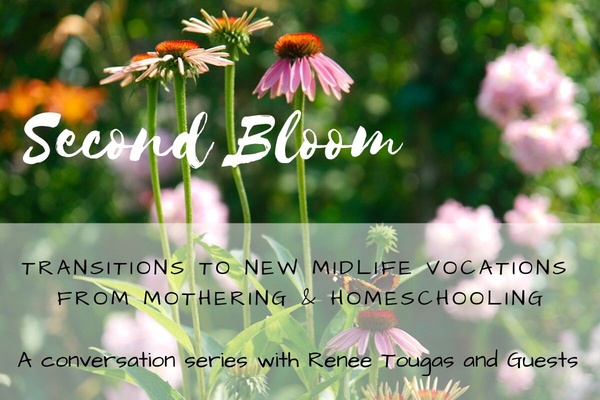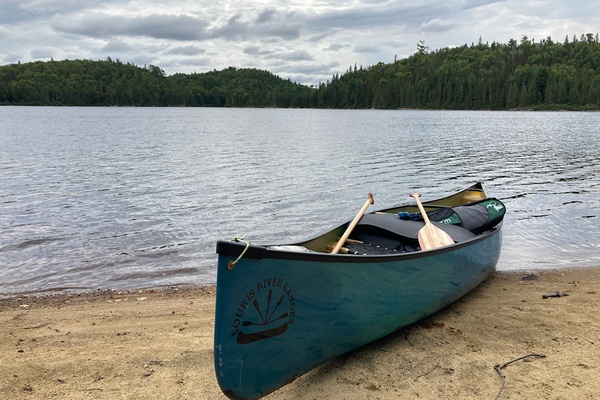Get posts by email
A glossary of terms
October 25, 2016
This is the fourth post in a series on vocation, marriage, and work.
It's important for me to define the terms I'm using in this series. When I use the words work, calling, vocation, purpose, I'm not bantering around ambiguous words and I'm not using them interchangeably. I have certain ideas in mind associated with each of these words.

I've been working at these definitions (I've spent a lot of time on this post) because I like clarity and well-defined ideas and I want readers to understand what I mean when I say things like, "I'm called to build a garden in my backyard". But I've also been working to define these ideas to help me understand where I fit in the world of income-earning jobs, careers, and vocations.
We live in a society and culture that assigns worth to individuals according to their income-earning potential, or on the flip side according to large and sacrificial acts of service for society. We also assign worth to people based on novelty and fame, and to those outstanding individuals who make a great contribution of some kind to the world.
The vast majority of us though are very normal, under-the-radar folks. Our contributions are small, our incomes are modest.
My predominant vocations have been keeping home and raising and educating children, and I am financially dependent on my husband to do this work for our family.
Over the years I have added other work to my homeschooling and homemaking; freelance writing and photography, producing and selling online and digital content, growing a blog.
My motivations for these activities has been varied. I've pursued these things because I've wanted to grow as an individual, to express my creativity and make connections. I've also wanted to earn money and help contribute financially to our household. These are all good motivations as far as I'm concerned.
But I've also been motivated, at times, to prove my worth by "producing" something other than children. I am not proud of the times I've looked for my worth in what I do. Whether I'm basing my worth in my mothering abilities, the state of my marriage, how much I contributed to the household income, or my blog visitor stats - all of it is off-base.

My worth, my value as a human, has nothing to do with what I produce, or what I contribute. It has nothing to do with being outstanding, in my own merit, in any way. My worth is grounded in my identity. And my identity is found in the redeeming love of Jesus Christ. My identity is that I am loved by God. Period. I can't seek any worthiness outside of that. I can't seek my worth in being a stay-at-home mom, a supportive wife, or an interest-led homeschooler.
Our identity is not in our callings or our vocations. Our identity is what gives us the courage to live those out but those roles don't define us. Our relationship with God is what defines us.
Who I am, as created by the hand of God, or, whose I am, is the defining mark of my worth and my value.
The Breaking helped me break from finding my identity in roles, responsibilities, and titles; from finding my identity in what I produce or how "good" I am at doing my jobs. It was a good thing. A hard thing, but a good thing.
How I define these terms: Calling, Vocation, Work, Job, Career & Mission is part of working through the post-breaking recovery.
These are my personal definitions. I'm not working for Webster, and they may not work for other people, but they make sense to me.
Calling
In my own life I have often shied away from this term because of its use within the religious and faith contexts. People say they are called to full-time ministry, called to be missionaries, called to be ministers and pastors, called to the priesthood. I've taken those beliefs and statements at face value, who am I to say a person isn't "called", but I've also been puzzled about what that means, to be "called".
I have never experienced a calling to a religious vocation. Many of the decisions I've made in my life about purpose and direction were made with cost-benefit analysis, weighing pros and cons, making lists of priorities and other such practical means. Other times big decisions arise from an inner knowing I can't explain quite so rationally, it's just something I know I'm meant to do. For me, both types of self-knowledge are ways of understanding calling.
I haven't experienced very many "aha" moments in my life with regards to calling. I haven't necessarily been looking for those moments but I do know that if I'm looking too far into the horizon, or up to the sky for inspiration I can miss what is directly in front of me.
I've come to understand calling as simply the true direction of my inner compass, in response to an understanding of who I am and whose I am.

Here's a definition, of sorts.
Calling - The things you are meant to do by virtue of who you are at your essence, as gifted and created by God, and your life experiences. A calling comes out of the unique alchemy of your values, personality, where you are in time and place, your relationships, your strengths and weaknesses. A calling is the thing you are meant to do because of who you are.
Our calling is how we show love and express the Divine in us, the unique imprint of the Creator that only our particular combination of genes, experiences, upbringing etc. can share with the world. So of course people will have similar callings, by name, but by expression it might look very different. My urban gardening, writing, homemaking, mothering, marriage (all callings on my life) will look different than yours.
Calling is not our identity, though our callings may be part of how we define ourselves. I am called to be a mom, for example, but motherhood is not my identity.
John O'Donohue says,
As water takes whatever shape it is in, So free may you be about who you become
The idea of water taking the shape of what it is in helps illustrate my definition of calling. Calling is the space we take, in the universe, in our lives, our relationships, in our work because of our shape. Our shape is who we are, that unique alchemy of values, personality, where we are in time and place, our relationships, our strengths and weaknesses.
We grow into our callings and we own them as ours not because we're called to something outside of our ourselves, but because we rise up from within ourselves to take the space, shape, and form that is ours alone to inhabit, ours alone to live. That is our calling.

Vocation
Vocation is a type of calling. I think a lot of us "get" the idea of vocation intuitively, but it's hard to articulate, at least for me. We know vocation is used to describes types of employment and income-earning, but we also recognize that not all vocations are remunerated, stay-at-home-parents and other unpaid care givers, for example. Some people work in community volunteer positions as vocations. So vocation does not equal the ability to earn income.
Vocation comes from the latin word vocare 'to call'. Often calling and vocation are used interchangeably, but I don't use them as synonymous terms.
I feel called to be a fair number of things, a partial list is forthcoming in a future post in this series. But not all of those are vocations for me.
I am called to be a mother. But I don't consider motherhood a vocation. Relationships, in and of themselves, are not vocations, but the work I do to support that relationship, to support people, that can be a vocation. I'm called to be a wife but "wifehood" is not a vocation, though the work I do to support my husband is part of my vocation.
I'm called to build an urban garden but I don't feel that gardening is a vocation. If gardening was something I did on a larger scale to feed our family or as a service to our community, in some way, than I think it could fit the bill as a vocation. As it stands now I guess it's part of my homemaking vocation.
Homemaking is definitely a vocation for me. It's been my primary occupation for nearly two decades. And I'm called to be a writer and although this doesn't earn me much money, less than a little right now, I still consider writing to be one of my vocations.
I'm currently in a place where none of my vocations earn much money, if any. And that's partially why I am here, writing this series of posts and getting stuck defining vocation. My homemaking and homeschooling vocations do not earn money, yet they are two of my life's most significant callings in a society and culture that barely recognizes this work, and even questions the validity of this work. (Don't we pay taxes to fund public schools, staffed by professionals, to educate the next generation?)
I don't feel insecure about this anymore, my insecurities have taken up residence in other places in my life. But it is something I wrestle with intellectually.

I googled the definition for vocation (that's where I learned about the latin origin) but the definition wasn't all that helpful and I flat out disagree that a vocation "is a person's employment or main occupation, especially regarded as particularly worthy". What exactly makes one type of work, and not another, particularly worthy? These are hard things to define in a post-modern, relativistic society.
So yes, vocation is hard to define but I have to settle on something, as a definition-in-progress at least, to explain what I mean for the purpose of these posts.
Vocation is the work we do that is an expression of our calling(s).
Vocation can be a profession or an occupation, but it's not a certain "type" of work or how much money you make at that job, or how "worthy" that job is.
Each one of us has some kind of vocation. We are all called by God to share in His life and in His Kingdom. Each one of us is called to a special place in the Kingdom. If we find that place we will be happy. If we do not find it, we can never be completely happy. For each one of us, there is only one thing necessary: to fulfill our own destiny, according to God's will, to be what God wants us to be.
~ Thomas Merton
It's the work you are meant to do, because of who you are (that shape you possess), that is in service to humanity. Our vocations, our work, should be of service to other people. That is one of my bias' in this discussion.
The line here between calling and vocation is fuzzy and where I draw the line may not be where others would draw that line.
Perhaps it's all a matter of degrees and steps on a spectrum. I have not provided a definition here that I am completely happy with but it's time to move on so this post get published. My clearest idea of the word vocation is that it's a type of calling though calling does not equal vocation. Vocation relates to the work we do, that is a service to our communities and our families. Or as Thomas Merton would say, our "special place in the Kingdom"

Work
Phew, moving on to easier territory.
Work - anything you set your hand, head or heart to do that yields a result; effort done in order to achieve a result or purpose. Work is not the opposite of play, play can be a type of work, learning is work. I like the precision of the scientific definition of work, work is the transfer of energy.
When I cook a meal, I transfer the energy of my hands, head and heart into achieving a result: supper. When I write, there is a transfer of mental energy, into physical energy (my fingers on the keyboard right now) to create a result: published thoughts. When my daughter learns a new chord on her guitar she uses her mind and body to transfer the energy of the idea of that chord into the reality of music. You get the idea. Our ability to produce, through the transfer of energy, is amazing.
Income-earning work is simply work that is remunerated.
I cringe at the get-to-know-you question "what do you do for work?" Not because I'm ashamed of my work but because it's such a nebulous question. Should you answer with your job title, or your vocation? Or with the thing you do to earn money? And what if your income-earning work isn't a good representation of who you are. And when people ask that question do they want to know who I really am (of which my work is a part, but not the defining feature), or do they just want to categorize me like a census-taker, "your occupation please ma'am?" (Gosh, I hate those checkboxes also. To me, housewife feels like a hideous title for my vocation.)
Part of the reason I wanted to write these definitions, crude and relative as they are, is because I feel that language and social customs haven't caught up to the reality of our lives when it comes to work, income-earning, and vocation.
People are complex and fascinating and can't be defined by what they do to earn money.
We try to define people by income-earning work, jobs, careers, vocation, in part because people seek to define themselves this way. But that is such a narrow view of understanding a person.
What are your interests? What are your callings? What does your day look like? What do you enjoy most in life? When do you feel really vibrant? How does what you do to support your family, financially or otherwise, fit with who you are? And even, yes, how does your family make a living? (As a detail person who does most of the financial bookkeeping in our home, I am always curious about what people do to earn money.) These are the questions that interest me more than What do you do for work?
I guess what I really want to ask when I meet someone, or as I get to know them, is this: tell me who you are. And in truth, that is something that not everyone wants to talk about when they first meet someone. I have to remember getting to know someone is a gift we are given over time. I probably just need to be more patient.

Job
There are two types of jobs, job as a discrete unit of work, eg. washing the dishes. And job as work defined by specific roles and responsibilities. If work is effort done to achieve a result, a job is the domain in which this work is being done.
I'm not going to spend any time discussing job as a discrete unit of work. Our entire life is composed of jobs.
I want to talk about jobs in the context of work and vocation.
I often use the word work and job interchangeably, which of course is fine if we're clear on the terms. But I'm trying to be more precise in these definitions.
I don't make any distinctions here between professional jobs (white collar work), service industry, blue collar work, academia, creative industry, etc.
The most soul-satisfying jobs, both the discrete units of work and jobs as specific roles and responsibilities, are those that enable us to fulfill our callings, in the specific work we do as part of that job. But even if the work doesn't align very well with who we are, satisfaction is also found in knowing we fulfill our callings when our work supports and provides for those we love. Because what is our calling as humans if not to take care of one another?

I think people have always sought after meaningful work but our definition of meaning changes: survival, upward mobility, freedom, service to the greater cause; the definition of meaningful work is largely generational.
Many of us place a high value on "meaningful" work, which could be defined as a job that aligns with our callings. But regardless of the type of job we have, most of us have a strong desire to provide for ourselves and our families, to support loved ones and our communities. We want to serve other people, most notably our closest kin, and we will do jobs, both the discrete kind (scrub the toilet) and the role and responsibility kind (store manager), to meet that need even when the job, which is a type of work, doesn't align with our calling.
But let's face it, we have a drive to align our inner selves with our outer actions, to seek congruence between our calling and jobs. And when we can do that, I believe that is a vocation.
So, a job can be a vocation, or vice versa, but not all jobs are vocations. And the distinction is strictly personal. Working in food service might be vocation for someone and a less-than desirable job for someone else.
Another example, teaching can be a job or a vocation. The distinction between the two is whether or not a person feels called to teach as an expression of their gifts and talents, or called to teach primarily as a means to secure an income. I don't believe one motivation is more noble than the other, more worthy. Doing a job so you can eat and so that your loved ones can have some security is a noble thing. But most of us recognize that we get more satisfaction, and the people we work with are better served, when our jobs are an expression of our callings. Interestingly, callings can shift and change in us, as we shift and change, so that we can find satisfaction and service in places we didn't think was possible.

Career
An overarching trajectory of jobs and vocations, usually related to particular skill set, experience or aptitude.
Homemaking is a career for me, so is homeschooling. I feel I haven't been at writing long enough to call it a career, but I would like to make it a career, ideally with remuneration of some kind.
(Grand) mission or life purpose
The essence of why you live. What are you on earth to do? Why were you born? This is your raison d'être.
For many people this is religious or spiritual in nature. For others it's related to service or self-actualization.
A (grand) mission is how an individual defines what it means to realize his or her potential, explains his or her existence, in the broadest terms.
Personally, my life's purpose, my grand mission, is to glorify God. That is my highest potential and my reason for being.
Since this post is a discussion of work and vocation, I should add: a person's (grand) mission and their life purpose is partially fulfilled through one's callings, vocations, jobs, work, and careers.

Micro-mission
Micro-missions are the purposes we assign to the distinct parts of our lives. You might have a mission for your income earning work. A family mission. A mission for your home.
I have a mission for my mothering, a mission for my marriage, a mission for this blog, a mission for my writing in general. And others. Some of these I've defined in writing but others have only been expressed in my heart and mind.
These are less detailed than you might imagine. Right now, my mission for marriage is to nurture friendship, kindness and respect in my relationship with Damien.
Micro-mission statements might seem like goals but for me goals are more specific. Goals are actions, behaviors, or mindsets in support of the mission.
As related to work and vocation, one's mission for their vocation is the purpose of that effort and endeavor. Why are you doing it? What ends do you hope to achieve? I don't have a written mission statement for my homeschooling work but I think our graduations goals is a type of mission statement for my work in facilitating a home education for our children.
I've struggled with writing mission statements in the past in an attempt to integrate every part of my life into one paragraph. This approach no longer seems like a good fit for me.

I have a grand mission and life purpose. And within that raison d'être my life is made up of all the things I do and who I am.
I have callings in many areas of my life, but the ones related to my roles and responsibilities in supporting our family, I define as my jobs. The work I do at these jobs contributes to the physical, emotional, intellectual, and spiritual well-being of my loved ones. I also do work that contributes to the well-being of my community, neighborhood, church, and homeschool. Those are also jobs. Like a river fed by many small streams, my vocations are collective expression of these jobs.
All of it is work. And all work, when done with the right heart, is honorable.
Someday, fairly soon in the coming years I will have new jobs, new roles and responsibilities outside our home, that I hope will be an expression of my callings. Some of these jobs may become new vocations for me. Some of these may even earn money. Some of these jobs might be temporary projects or work arrangements that I do for a time to meet a need in our family or to fulfill a personal desire.
Everything is part of the story of my work, which is to say my life, an ever evolving journey of identity, self-discovery, and service.
Filed Under
Part of Series
Resource Library
-

MOM Tougas on Oct. 25, 2016, 3:27 p.m.
It is especially hard to define yourself to people who ask 'What Do You Do?', when you are retired. They seem to think that if you aren't working at an income earning job, especially if you have no spouse or dependents, that you are doing nothing, in fact...worth less...the final sad joke on many seniors after working hard, serving others, making tremendous sacrifices.
Many seniors live sad, lonely lives alone and mostly forgotten. Our society has made it that way. They used to live with their children in the old days and help with the chores and child rearing. They had purpose then. Now they are expected to live alone and when they are not able to live alone, they are put in nursing homes and left to die there. The lucky ones have children, who remember to visit them, who watch on their behalf that they are receiving proper care, and who bring them home on occasion.
However, some seniors cope with this dilemma in very different and creative ways. These seniors feel value in mentoring younger people seeking advice from seniors, who have had vast and varied experiences to share. Some seniors volunteer themselves, their time and skills in areas of their interests and feel tremendous self worth doing so. There is no monetary gain from this, but there may be 'perks'.....a feeling of being loved for who you are, free tickets to entertainment venues, invitations to dinners, making of new friends, travel opportunities, fame, popularity amongst certain folks, a feeling of wellness and youthfulness that comes with doing something you love because it brings you joy.
In sharing yourself this way, you are sharing your gifts from God, working for Him...... living your Higher Self!!! This may be your Final Calling on this earthly plane...a culmination of all you have learned in a lifetime of living and doing God's work...
-

Mb on Oct. 30, 2016, 4:29 a.m.
Renee, I can't thank you enough for sharing this thought provoking post. I so value you and your perspective. In transition now as we coach and guide our highschool graduate about what comes next and what to consider beyond what you get paid for, this post moves and energizes me. Thank you.
-

Krista on Nov. 4, 2016, 2:21 a.m.
Although I do not take the time to super define the words I use, I do spend a fair bit of time encouraging my clients or those in my classes to reflect and define their mission, meaningful work, identity, etc. (and I need to do this for myself. I have a strong need to know why I do things the way I do - or why it matters - or to live very purposefully.) I just did a little FB live on the topic if anyone is interested. It is not detailed but I wanted to chat about it:)
I feel like getting clear on these things anchors us and helps us understand that our value is less in what we do and more in just who we are. Loved. Created for a purpose. Uniquely gifted (whether or not these gifts are big and flashy or smaller and less celebrated by this big world). I see/hear that some women have thier identity wrapped up in homeschooling or motherhood - but what if that all ends? I mean eventually the kids will leave home but what about if there is a tragedy? Or you need to let go of homeschooling for self-preservation... what then? (I don't mean "you" exactly.)
Anyways, I love exploring this and appreciate, as usual, your thoughtfulness and thoroughness. xo
You can subscribe to comments on this article using this form.
If you have already commented on this article, you do not need to do this, as you were automatically subscribed.







janice on Oct. 25, 2016, 1:22 p.m.
Teacher. As a reader, that is the word that jumps to mind if someone were to ask me "what does Renee do??" I feel like I remember you said that was your school background and perhaps you started off doing that in a traditional classroom setting. But I think that word is unfairly limited by location or forum. You are a teacher to your children, your family and your community. I read your blog because I learn things about the world, different viewpoints, emotions & relationships, and myself. You are a fantastic teacher.